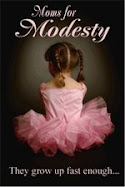The book of Job is a book about an intense and painful spiritual warfare. It is a story of the physical suffering of a godly and righteous man who had done nothing wrong. Job is in the midst of a spiritual warfare he understands very little if anything about. His faith in and love for God is being put to the test. Ours is and will continue to be, so we had best learn this now. Job has lost all his children even though he spent much time sacrificing, praying and interceding for all of them. They were slain, in spite of his prayers, not long after he'd sacrificed and prayed for them. He lost his servants, his herds, and now his health. He lost the respect and confidence of his wife and friends. He is in tremendous emotional, spiritual and physical pain. His wife is struggling with her own grief, confusion and anger, so she is no comfort at this time. She needs comfort herself, and Job can't comfort her either. So there is a division between the wife and the husband that in itself must have been painfully damaging. When she'd spoken foolishly, he overlooked it. But he saw the doubts, the questions in the eyes of this woman he knew so well. That had to hurt.
Job's grief overshadows in his mind, all the good he has ever known in his life. He said those who were dead were better off, because in the grave a man had rest and couldn't hear the voice of the oppressor. (V. 18) In the Hebrew (H5065) the word is nagas (possibly where we get the English word 'nag' from?) I think that is a powerful statement from a desperate man. This is a nagging voice that is maddening. It means to drive, as an animal, to heavily tax, harass, tyrannize, distress, to press or exert demanding pressure. In other words, those who are dead have rest from the constant warfare. Anyone who's been tormented by the devil in their minds can testify it's not fun. I believe this is why many commit suicide at times, to shut that tormenting voice in their head up, never understanding all they have to do is cry out to Jesus. They are blinded to the truth.
So you have a man who has lost nearly everything he had that was precious to him. When his children, his servants, his animals and herds were taken from him, when his health was taken from him, along with the respect and confidence of the community and his wife, he held his peace for a week after his friends showed up. Now, here sits three of his friends, Eliphaz, Bildad and Zophar. Let's look carefully at the three who came. I wonder did Job have no siblings? None came to offer support. No parents came to offer support. Out of all the people who knew Job, only these three came.
As I'm studying Job I have noticed in Eliphaz' conversations with Job, he eloquently ascribes honor, glory and majesty to God. He sounds like a very religious man who seeks to uphold the purity and holiness of God, but he has a lot of zeal without personal or intimate knowledge of God Himself-and this means he misrepresents God. You can't accurately represent someone you do not personally know and know well. (Rom_10:2) This kind of mentality is rampant in religious circles, especially those who are bound up in legalism, whose holiness is more in what they don't do and how they dress than Who lives in them and how much of His likeness they are being changed into. Eliphaz believes that God's retribution toward man's sin in this world is total and certain and suffering is only brought on by sin. His theology is very wrong. So in his terrible suffering, you have a 3 religious people, who think they know God. They are all accusing Job wrongly. One has a zeal for God with no knowledge or intimate acquaintance with God. One is a severe man, who is also influenced by a prosperity gospel, as well. Then you have the third man, one who sees God as some austere Being, with a hammer raised over your head, ready to slam you if you step out of line. These three men typify much of religion today. I have encountered most of these attitudes over the years-and always found pain and discouragement when I did. Job is on display for us, so let's take a look at this man, and how he responds in this awful crisis of his faith.
Read More Here









No comments:
Post a Comment